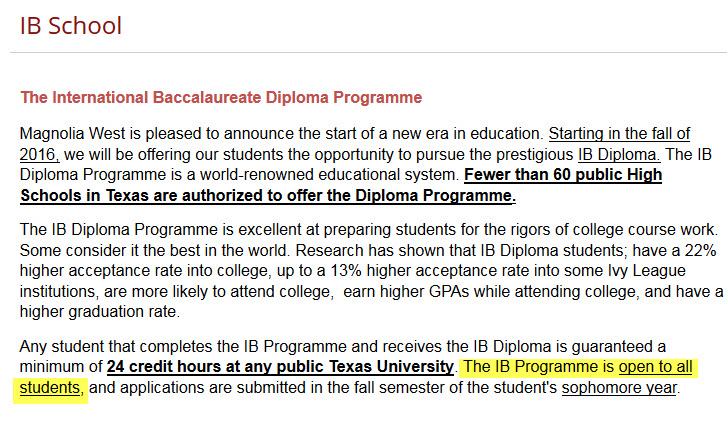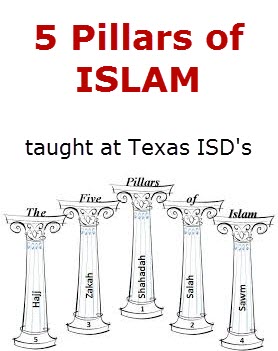How is the IB different from AP? Is one better than the other?
While neither program is better than the other, they each have different aims.
Know that neither programs can be open to all students and have advanced curriculum–Prior to inclusion of all students, only students with the ability to be successful were allowed to enroll in AP classes. If a student was not able to maintain a passing grade they were advised to join regular classes.
1.The IB is a comprehensive curriculum that requires students to demonstrate knowledge and skills through both in-class and outside assessments in six academic areas.
- Schools that offer IB must be prepared to offer the total program upon initial implementation.
- IB is expensive
- Students whose main goal is preparation for either a career with an international perspective or college in another country may prefer IB because of its recognition at overseas universities.This is not being revealed to all. Do parents know this?
- IB is a two-year program and not transferable from one school to another.
6. Also, IB diploma students who plan to attend selective colleges (?) may receive preferential admissions consideration and/or college credit for satisfactory IB exam scores. But not all colleges do this.
_______________________________________
- AP, on the other hand, permits campuses to pick and choose from over 30 offerings.
- AP’s expense is only exams.
- Students whose main goal is college credit will probably choose AP because Texas colleges offer credit on a more widespread basis for satisfactory AP test scores than for IB scores.
I keep hearing that IB is for those students that high achievers, ones that excel academically but as stated on Magnolia ISD’s website the program is open to ALL STUDENTS. How can a program be open to all students be academically challenging. It can’t? It is not important th
The program is based on Humanism (NO GOD). IB promotes interdisciplinary learning with the intent of indoctrinating students with “international-mindedness”.
George Walker, the Director General at IBO, “International education offers people a state of mind: international-mindedness. You’ve got to change people’s thinking.” Hence, “students develop an awareness of moral and ethical issues and a sense of social responsibility . . . fostered by examining local and global issues.”
In achieving international mindedness, International Baccalaureate has endorsed the United Nations Earth Charter, the Green Agenda …a global code of conduct based on earth centered spirituality (Gaia) and globalist values.



